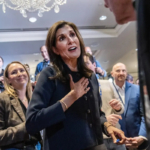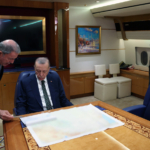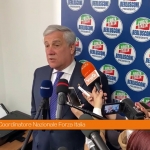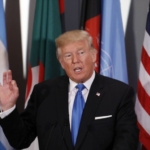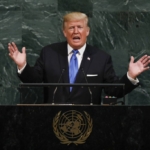On May 9th, the Trump administration made public its plan to provide the Kurdish-led Syrian Democratic Forces (SDF) with substantial heavy weaponry. The announcement signals Washington’s decision to rely on the SDF, which is dominated by the Kurdish Democratic Union Party (PYD), for the operation to liberate Raqqa from Islamic State (ISIS) control. Ankara’s reaction to this decision, as it was to the Obama administration’s similar conclusion, will be vociferous. Turkey views, with a good deal of justification, the PYD as the Kurdistan Workers’ Party (PKK) affiliate in Syria. The PKK has been fighting the Turkish state for most of last 33 years. Your humble columnist dearly wishes he could be a fly on the wall listening to the upcoming meeting between Trump and Erdogan on May 16th. Mr. Trump nonetheless made the only right, and only real, choice for an administration that promised to defeat ISIS in both Iraq and Syria. Going with Turkey for the Raqqa operation would have been a terrible choice. The Turks were never willing to send much of their army to Raqqa, their Free Syrian Army (FSA) proxies are not as good or proven fighters as the Kurds, the Turkish-aligned FSA are less numerous than the SDF/PYD, and in many cases they seem about as Islamist as ISIS. Turkish forces and their proxies would also have been fighting the Kurds all along the way to Raqqa. Naturally some policy elites in Washington appear intent on second guessing Mr. Trump’s decision on the matter. James Jeffrey, former U.S. ambassador to Turkey and Iraq, argues in an April 10 Foreign Policy Magazine piece that the U.S. should have gone with Turkey on the Raqqa operation. Although this columnist has not seen any evidence for Mr. Jeffrey’s contention that local tribes want a Turkish role in the liberation of Raqqa, the rest of his argument deserves some scrutiny. Jeffrey argues that by focusing on the short-term tactical goal of destroying ISIS, the Americans are forgetting the more important strategic contest (which he likes to a “great game” of chess) going on in the area: Efforts by Turkey, Israel and other Arab Sunni states to push back against Iranian and Russian attempts to overthrow the regional order in the Levant. Jeffrey’s then goes on to draw a misleadingly simple tradeoff, where Washington can either 1) Fight ISIS without Turkey and let Iran and Russia win the larger game; or 2) Join Turkey against the Iranian-Russian attempt at hegemony in the Levant. Mr. Jeffrey, like many American and Turkish policy makers, appears unable to see more than a two-dimensional game of chess. He works hard to argue that Turkey is an American ally while the PKK (and its Syrian PYD sister) are proxies of Iran, Assad and Russia. Things are a lot more complicated than that. Sometimes the PKK and these actors cooperate, while at other times they fight each other. To understand what the Iranians’ and Russians’ three-dimensional chess game looks like, in contrast, one need only ask how Iran, which Jeffrey himself acknowledges to be much less economically and militarily powerful than Turkey, enjoys so much leverage and influence outside its borders? Russia as well, with an economy the size of Australia’s, seems to punch in a foreign influence weight class far beyond its real size and power. The answer has to do with both Iran and Russia’s complex policies of supporting and working with various actors internationally, adroitly applying patronage and cooperation to maximum effect. Iraqis, for instance, know very well how Iran supports myriad groups in that country including various Shiite parties competing with one another, some Kurdish political parties and even Sunni Arab parties. When Iran thus wants to get something done in Iraq, it has a lot of often mutually hostile groups it can turn to. If something occurs in Iraq that Iran opposes (such as the 2012 no-confidence motion against Prime Minister Maliki), it can use its influence to overthrow the whole process. If the Americans, either by shrewd design or by accident, are to play a similarly high level of three-dimensional strategic chess in the Levant, they might well start with more support for the PYD at the same time that they remain NATO allies with Turkey. This seems especially wise given Turkey’s own ties with Jihadi groups in Syria and elsewhere (Jeffrey conveniently ignores the question of replacing ISIS with Jabhat al Nusra or Ahrar al Shams, which would hardly offer much of an improvement from the American point of view). In such a game, why couldn’t the U.S. support the PYD against ISIS and simultaneously oppose Iran? A simple rhetorical flourish might even do the trick: While leaders in Washington have repeatedly stated that American weapons given to the SDF/PYD must not end up in PKK hands or be used against Turkey, they never said anything about such weapons finding their way to the PKK’s Iranian branch, the Kurdistan Free Life Party (PJAK). PJAK, of course, has been fighting a guerrilla war against the government in Tehran since 2004. This way, Ankara gets to keep supporting Hamas, Jabhat al Nusra (al Qaeda in Syria) and other American friends, while Washington can pursue its own Kurdish friendships outside of Turkey, and both can still pretend to be the best of friends at NATO summits — just like Turkey and Iran pretend to be friends at the Organization of Islamic Cooperation.

